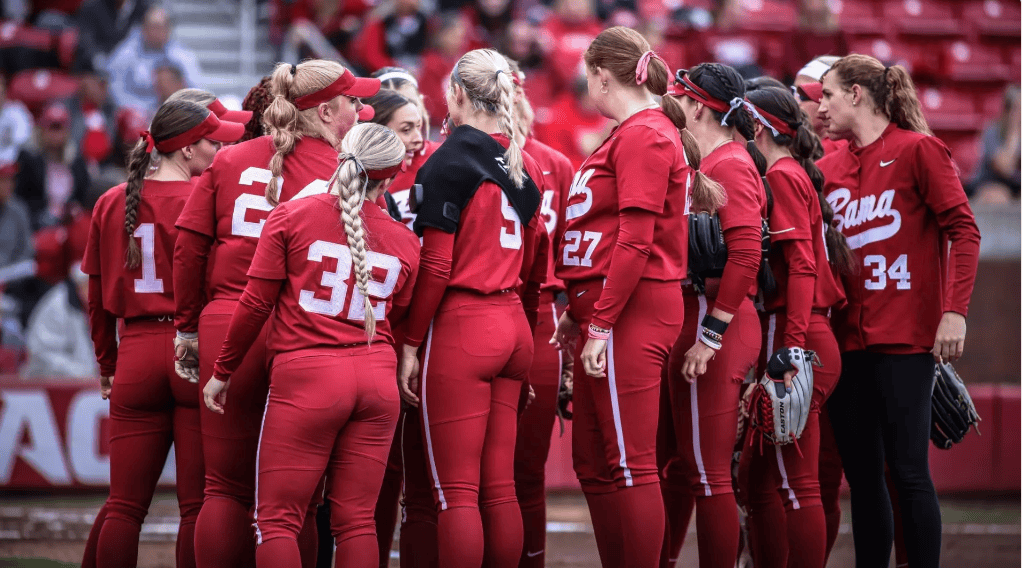After ten years of waiting, former University of Alabama athlete and five-time Olympian Pauline Davis-Thompson received her second gold medal, a full decade after competing for it.
In the 2000 Olympics in Sydney, Australia, Davis-Thompson finished second behind Marion Jones in the 200-meter race, receiving the silver medal. In 2007, after years of denial, Jones admitted to using steroids.
Consequently, the International Olympic Committee stripped Jones of the gold medal, putting it in the hands of its rightful owner, Davis-Thompson.
Although it was a moment she had dreamed about since the day of the race, Davis-Thompson said it was still an unbelievable experience.
“At first I was in disbelief, then I thought they were kidding,” she said.
Once she came to the conclusion that it was real, Davis-Thompson felt a flood of other emotions, she said.
“It took a burden off me that I had been carrying for so long,” she said. “In my heart I knew I had won the gold medal. But then a wave of emotions came over me and I felt cheated.”
A native of the Bahamas, Davis-Thompson competed for her country in the Olympics. Had she won the gold medal that day, she would have brought the Bahamas their first gold medal in track and field.
“I struggled and struggled, and finally did it, but I got beat by the chemist,” she said. “The medal is one thing, but to be able to hear your national anthem and see the flag go up, it’s a symbol for your country. It brings such great pride to represent your country at such a high level. That was what I really wanted the most.”
Davis-Thompson said not only was she cheated, but so was her whole country. She didn’t realize how upset they were until much later.
“It was amazing, they would say to me, ‘When are we getting our medal?’ I always found it so odd,” she said. “I thought I was the only one hurting inside, but then I realized that it’s not just me. She cheated our whole nation.”
Davis-Thompson did not receive a $40,000 check and endorsements that accompany a gold medal, but she believes money could never replace the lessons that come with achievement.
“(Jones) temporarily stole my success,” she said. “Even though I won’t reap the same financial benefits she did, I can still touch more young people’s lives. I’m going to give back to my country.”
The night Davis-Thompson received the medal, she said a force sent her to Parliament to deliver the medal. Parliament’s session ran over that night, but it didn’t stop her from walking into the meeting.
“I wasn’t allowed but I walked in,” she said. “Once I was in, I realized I wasn’t actually allowed, so I just sat and waited.”
She informed Parliament she wanted this medal to be seen by all Bahamians.
“I wanted the medal somewhere where Bahamians from all walks of life could see it,” she said. “It’s a beacon for the others. If I can do it, they can too. There’s nothing stopping them. They can accomplish those goals and dreams.”
The road to becoming an Olympic gold medalist wasn’t easy. From the beginning, she was met with discouragement, but Davis-Thompson said she has always had a strong drive inside her that wouldn’t stop.
“One of my elementary school teachers said, ‘For a little girl you have one of the most powerful minds; it can get you places.’ I didn’t understand what she meant at the time,” she said. “But as I got older, I realized once I put my mind to it, I could do it. I had no idea it wasn’t normal to be this way. I’ve been like this all my life.”
Davis-Thompson ran at Alabama from 1985-89. Former UA assistant track and field coach Wayne Williams recruited hard to get her to Alabama. Coming out of high school, she had an edge he liked.
“She was already competing during her senior year at high school with times that were very competitive for collegiate athletes,” Williams said. “She had a good, solid background.”
Davis-Thompson clearly remembers the day she decided to come to Alabama. She says divine intervention led her to Tuscaloosa.
“I knew I wanted to be in the SEC because they were the best at track and field,” she said. “I was debating between other schools when Coach Williams called. He said they would love to have me and I said OK. I don’t think he believed me because he sent the letter of intent immediately.”
After deciding on Alabama, Davis-Thompson said she faced more opposition. It never stopped her before, and she didn’t intend on letting it then.
“I was told stories about how bad it would be,” she said. “It’s horrible what they were saying about Alabama, but I had made my mind. I didn’t care what happened when I got to Alabama. I was staying for four years and getting a college degree. All the things people told me never materialized. I had an amazing time; if I had to do it over again, I would.”
Still today Davis-Thompson remains close to Williams. Williams spoke highly of her career.
“I am extremely proud and happy on a personal note having been associated with her since before she was 17,” he said. “Her time at Alabama was tremendous and she was in five Olympics. That’s a lot of hard work and dedication.”
Davis-Thompson is grateful to the University. She said at Alabama she was able to grow as a person and as an athlete.
“My scholarship and education was second to none,” she said. “Thank you to all the administrators who made my time such a pleasant experience. Keep doing what you’re doing, producing better people for the countries. I will always be grateful.”
After a lifetime of hard work, Davis-Thompson finally got the gold. After silently waiting a decade for the medal, she feels it means more now than ever.
“The greatest satisfaction now is that the whole world knows I was the true Olympic medalist,” she said. “That medal is going to be worth more than any amount of money I could ever achieve. It’s a national symbol. It will live on. What the medal represents will live on, and to me that sums it up.”






